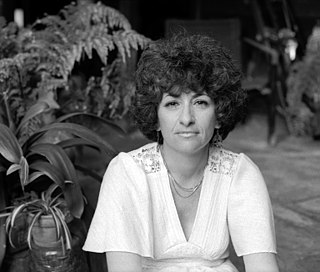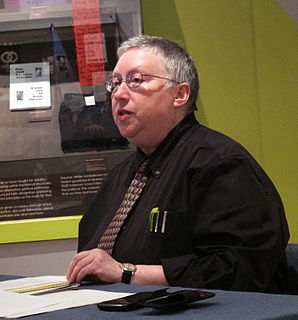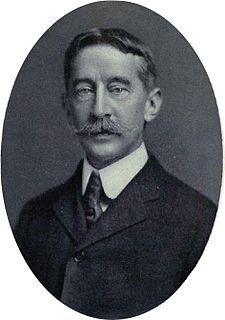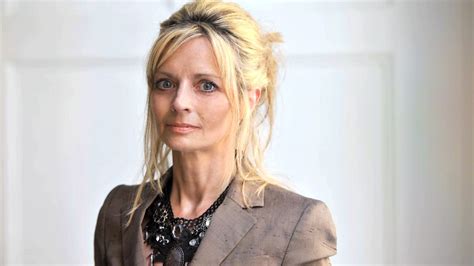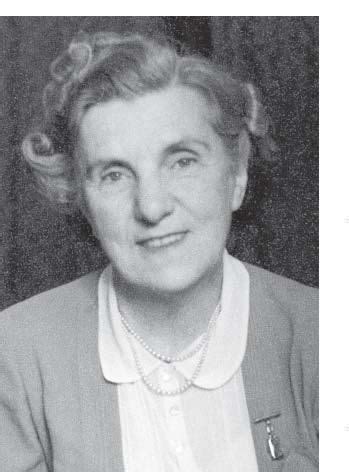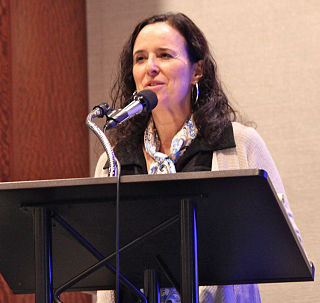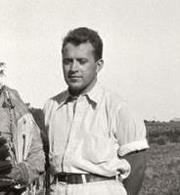A Quote by Barbara Myerhoff
All rituals are paradoxical and dangerous enterprises, the traditional and improvised, the sacred and the secular. Paradoxical because rituals are conspicuously artificial and theatrical, yet designed to suggest the inevitability and absolute truth of their messages. Dangerous because when we are not convinced by a ritual we may become aware of ourselves as having made them up, thence on the paralyzing realization that we have made up all our truths; our ceremonies, our most precious conceptions and convictions - all are mere inventions.
Quote Topics
Absolute
Absolute Truth
Artificial
Aware
Because
Become
Ceremonies
Convictions
Convinced
Dangerous
Designed
Enterprises
Having
Inevitability
Inventions
Made
May
Mere
Messages
Most
Our
Ourselves
Paradoxical
Precious
Realization
Ritual
Rituals
Sacred
Secular
Suggest
Theatrical
Them
Traditional
Truth
Truths
Up
Related Quotes
Many of the rites of passage, those rituals of growing up found in our society, are in the form of such comic, practical joking affairs--which we ignore in the belief that they possess no deeper significance. Yet it is precisely in their being regarded as unimportant that they take on importance. For in them we ritualize and dramatize attitudes which contradict and often embarrass the sacred values which we proclaim through our solemn ceremonies and rituals of nationhood.
We can glut ourselves with how-to-raise children information . . . strive to become more mature and aware but none of this will spare us from the . . . inevitability that some of the time we are going to fail our children. Because there is a big gap between knowing and doing. Because mature, aware people are imperfect too. Or because some current event in our life may so absorb or depress us that when our children need us we cannot come through.
It is paradoxical, yet true, to say, that the more we know, the more ignorant we become in the absolute sense, for it is only through enlightenment that we become conscious of our limitations. Precisely one of the most gratifying results of intellectual evolution is the continuous opening up of new and greater prospects.
This is what rituals are for. We do spiritual ceremonies as human beings in order to create a safe resting place for our most complicated feelings of joy or trauma, so that we don't have to haul those feelings around with us forever, weighing us down. We all need such places of ritual safekeeping. And I do believe that if your culture or tradition doesn't have the specific ritual you are craving, then you are absolutely permitted to make up a ceremony of your own devising, fixing your own broken-down emotional systems with all the do-it-yourself resourcefulness of a generous plumber/poet.
I didn't marry you because you were perfect. I didn't even marry you because I loved you. I married you because you gave me a promise. That promise made up for your faults. And the promise I gave you made up for mine. Two imperfect people got married and it was the promise that made the marriage. And when our children were growing up, it wasn't a house that protected them; and it wasn't our love that protected them--it was that promise.
Our conceptions of morality, as all our other ideas, pass through a course of development; the difficulty comes in adjusting our conduct, which has become hardened into customs and habits, to these changing moral conceptions. When this adjustment is not made, we suffer from the strain and indecision of believing one hypothesis and acting upon another.
I look at some of the great novelists, and I think the reason they are great is that they're telling the truth. The fact is they're using made-up names, made-up people, made-up places, and made-up times, but they're telling the truth about the human being- what we are capable of, what makes us lose, laugh, weep, fall down, and gnash our teeth and wring our hands and kill each other and love each other.
Ritual consists of the external practices of spirituality that help us become more receptive and aware of the closeness of our lives to the sacred. Ritual is the act of sanctifying action - even ordinary action - so that it has meaning. I can light a candle because I need the light or because the candle represents the light I need.
